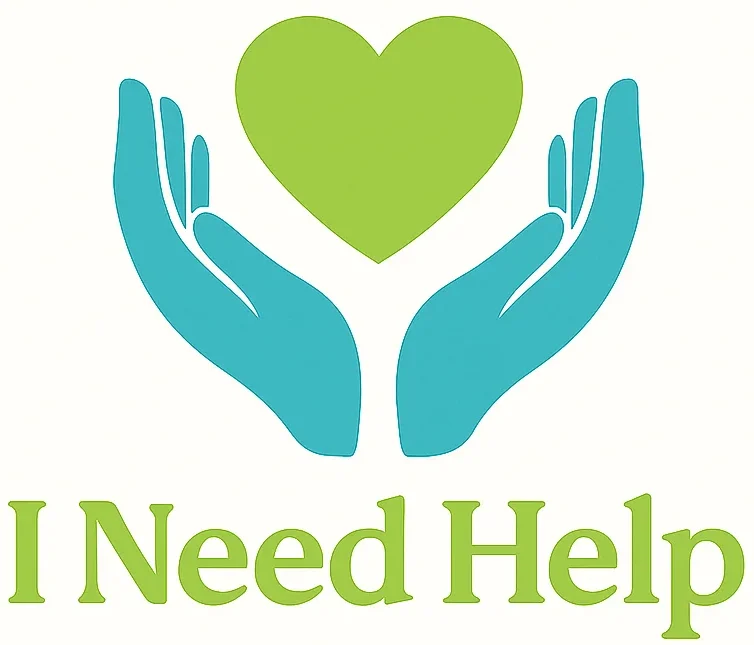Depression & Hopelessness

Depression & Hopelessness
Understanding Depression
Depression is more than feeling sad. It is a serious mental health condition that affects how a person thinks, feels, and behaves. It can interfere with daily life and may lead to emotional and physical problems. In South Africa, depression is the leading mental health disorder, yet stigma and lack of access to care prevent many from seeking help.
Common symptoms include:
– Persistent sadness or emptiness
– Loss of interest in activities once enjoyed
– Fatigue or low energy
– Sleep disturbances (too much or too little)
– Feelings of worthlessness or guilt
– Difficulty concentrating
– Changes in appetite or weight
– Thoughts of death or suicide
Not everyone with depression has all these symptoms. They can range from mild to severe and often develop gradually. People may not even realise they are depressed, instead assuming they are just “tired” or “stressed.”
Types of Depression
1. Major Depressive Disorder (MDD): Persistent feelings of sadness and loss of interest that interfere with daily functioning.
2. Persistent Depressive Disorder: Chronic depression lasting for two years or more, with less severe but long-lasting symptoms.
3. Postpartum Depression: Affects women after childbirth due to hormonal changes and stress.
4. Seasonal Affective Disorder (SAD): Depression linked to seasons, especially winter, though less common in South Africa.
5. Bipolar Disorder: Alternating periods of depression and mania (high energy, impulsive behaviour).
What Causes Depression?
Depression can be triggered by a combination of genetic, biological, environmental, and psychological factors. Common causes include:
– Family history of mental illness
– Trauma or abuse
– Grief and loss
– Chronic illness or disability
– Unemployment and poverty
– Substance misuse
– Hormonal imbalances
– Social isolation
In South Africa, many people live in stressful environments with high unemployment, crime, violence, and poor access to healthcare. These socio-economic factors significantly increase the risk of depression, particularly among youth, women, and people in rural areas.
How Depression Affects the Brain
Scientific research shows that depression affects brain structure and chemistry. Brain imaging studies reveal changes in areas responsible for mood, decision-making, and memory — such as the prefrontal cortex, amygdala, and hippocampus.
Depression often involves lower levels of neurotransmitters like serotonin, dopamine, and norepinephrine. These chemicals regulate mood and motivation, so when imbalanced, they contribute to emotional and cognitive decline.
Left untreated, depression can change how the brain functions, making recovery harder. Early intervention can help restore healthy brain activity and prevent long-term damage.
Effective Strategies for Managing Depression
1. Talk Therapy (Psychotherapy)
– Cognitive Behavioural Therapy (CBT) helps people identify negative thinking patterns and develop healthier coping mechanisms.
– Supportive therapy provides a space to process trauma, grief, or relationship difficulties.
– In South Africa, services are offered through LifeLine, SADAG, FAMSA, and university psychology clinics.
2. Medication
– Antidepressants can be effective for moderate to severe depression.
– They work by balancing brain chemicals but may take 2–6 weeks to show full effects.
– Only to be prescribed by a qualified doctor or psychiatrist.
3. Routine and Structure
– Depression disrupts motivation and energy. Having a simple daily schedule helps provide direction.
– Focus on small goals — getting out of bed, taking a shower, making tea.
4. Exercise and Nutrition
– Physical activity releases endorphins and improves mood.
– A balanced diet (high in protein, fruit, vegetables, whole grains) supports brain health.
– Avoiding excessive sugar and alcohol helps reduce mood swings.
5. Social Connection
– Isolation worsens depression. Stay connected to friends, family, or support groups.
– Even texting someone or going for a walk with a neighbour can reduce feelings of loneliness.
6. Sleep Hygiene
– Establish a calming bedtime routine.
– Avoid screens late at night and limit caffeine.
– Create a dark, quiet, safe sleep environment.
7. Mindfulness and Meditation
– Helps manage overwhelming thoughts and emotions.
– Free guided meditations are available on YouTube or apps like Insight Timer.
8. Spiritual and Cultural Support
– For many South Africans, spiritual practices such as prayer, attending church, or consulting traditional healers are integral to healing.
– Combining spiritual support with psychological treatment can increase effectiveness.
9. Journaling
– Writing about thoughts and feelings can provide clarity and emotional release.
– Use prompts such as: “Today I felt…” or “What I need most is…”
10. Gratitude Practice
– Noticing small positives can gradually shift one’s mindset.
– Example: write down 3 things you’re grateful for each evening.
The Role of Community
Mental health is not just individual — it’s communal. In South Africa, churches, mosques, schools, and community centres can play a critical role in early identification, support, and recovery.
Community-led initiatives like peer counselling, WhatsApp support groups, and outreach projects have helped reduce stigma and increase access to care — particularly in under-resourced townships and rural areas.
Addressing Hopelessness
Hopelessness is often the most dangerous symptom of depression. It can lead to thoughts of giving up or believing that nothing will ever improve. Combating hopelessness means rebuilding a sense of possibility.
Strategies include:
– Connecting with others who have recovered
– Setting achievable goals
– Reframing negative beliefs
– Receiving professional support
– Building self-compassion
Hope is a skill — not just a feeling. With guidance, people can relearn how to believe in their future.
Men, Youth, and Mental Health
Men are often taught to suppress emotions, leading to untreated depression. Suicide rates are higher among men, yet they are less likely to seek help. Initiatives that encourage emotional openness — through sports clubs, men’s circles, or mentorship programmes — are essential.
Among South African youth, rising academic pressure, high unemployment, and social media have led to increased rates of depression and suicide. Schools need dedicated mental health programmes that teach emotional regulation and self-esteem from an early age.
Overcoming Barriers to Care
Many people avoid seeking help due to:
– Stigma
– Cost
– Transportation issues
– Lack of trust in the system
Solutions include:
– Free counselling hotlines (e.g. SADAG)
– Mobile clinics and telehealth
– Training community health workers in basic counselling
– Advocacy for mental health funding in public health
Conclusion
Depression and hopelessness do not define a person — they are conditions that can be treated. With the right support, tools, and compassion, anyone can recover. You are not alone. You are not broken. You are worthy of healing.
Real-Life Stories
Ayanda, 32 – Soweto
“I didn’t want to live anymore. I felt like I was failing as a mother, a daughter, a person. My church helped me get into therapy. My therapist helped me get on medication. My sister helped me cook and clean when I couldn’t get up. Recovery took time — but I’ve found peace again.”
Kabelo, 27 – Limpopo
“After losing my job, I lost all hope. I didn’t talk to anyone. I drank too much. Eventually, my uncle dragged me to the clinic. I met a social worker who treated me like a human being. It was the first time I felt seen.”
Tasneem, 19 – Cape Town
“In matric, I felt like I couldn’t breathe. The pressure, the anxiety — it crushed me. I started writing poems to cope. That saved me. Now I run a poetry group for girls in my area. We talk about mental health and dreams. I want them to know they matter.”
Mental Health Resource Guide
